The objective of “A Project with ZUS” for lower-secondary schools is to develop awareness in young people regarding social insurance and the significance of being covered with such insurance, which will prove useful to them in the future. During the project implementation, they will learn about the basics of the current social insurance system, the responsibilities of its participants and the benefits available to insured parties.
An educationalist participated in the preparation of didactic materials for “A Project with ZUS”. The materials were tested initially in small groups of students. The project pilot took place in the 2015/2016 school year in 11 lower-secondary schools in Olsztyn, Warsaw and locations near Warsaw. 16 teachers and 272 students took part in it. The feedback from students and teachers helped polish the educational materials. At present “A Project with ZUS” is conducted all over Poland – in schools which volunteered for the scheme.
“A Project with ZUS” is a single lesson carried out with multimedia presentations and a film. The following educational materials were developed for its purposes:
-
an introductory lesson plan (project's objectives and scope of subject matter),
-
a presentation for the lesson with a survey-film lasting several minutes: What does Polish society know about social insurance?
plus content-related supervision and training for teachers – project heads.
The lessons emphasise the principle of social solidarity, need for individual assurance of one's retirement in the future and possibility to use social insurance during the period of social activity. The project's goal is to raise the social-insurance awareness in the young generation of Poles on a systematic basis.
“A Project with ZUS” is planned as a yearlong project conducted in all the lower-secondary schools which have volunteered. The communication with schools is the responsibility of branch heads of the Social Insurance Institution as well as those in charge of social communications and education in ZUS branches. Education and communication positions have didactic materials and provide content-related advice for teachers concerned. Should a school report such a need, each ZUS branch is obliged to train the teachers who will conduct the classes for students and to present and carry out instruction lessons.
The handbooks intended for the students of lower-secondary school miss information concerning social insurance.
They include issues relating to the human being in the society, nation and state, civil activity, the system of the Republic of Poland and local governments but no knowledge essential for people entering the labour market who are to secure the future for themselves and their families in case of illness, incapacity for work or death.
As ZUS performs the general social security scheme tasks in Poland, it decided to engage lower-secondary schools (teachers and students) in insurance issues. Social insurance applies to the vast majority of Poles. As shown by studies commissioned by ZUS and conducted in 2016, barely 7% of Poles have sufficient knowledge while 60% of people are ill-acquainted or totally ignorant. 33% of people have medium-level knowledge (40-60% of correct answers).
Following “Classes with ZUS” (for upper-secondary schools), “A Project with ZUS” is another project addressed to secondary-school students. The Social Insurance Institution has also developed lectures for university/academy students and introduces them gradually as an educational offer in Polish universities and academies.
What is ZUS?
The Social Insurance Institution (Pol.: Zakład Ubezpieczeń Społecznych – ZUS) is a state-owned organisational entity with legal personality, which handles the collection of citizens' social and health insurance premiums and the distribution of benefits (e.g. retirement pensions and disability, sickness or maternity benefits) according to the amounts and rules set out in generally applicable laws.
ZUS has gathered experiences in insurance operations for over 80 years. It was established on 24 October 1934 with a decision of President Ignacy Mościcki to integrate the five state insurance chambers which had operated till then. Since its establishment it has counted among the most modern and best organised institutions of this type all over the world.
At present, ZUS provides services for approximately 24 million customers, which places it among top financial institutions in Poland. ZUS is the administrator for the means of the Social Security Fund which account for nearly 50% of the state's monetary resources. However, the Institution does not pursue its own financial policy and cannot decide on its own about rates or benefits – the relevant policy is shaped by the Parliament through statutory arrangements.
Source: www.zus.pl
Link: http://www.zus.pl/default.asp?p=2&id=2
Source: Social Insurance Institution (Pol.: Zakład Ubezpieczeń Społecznych, ZUS)
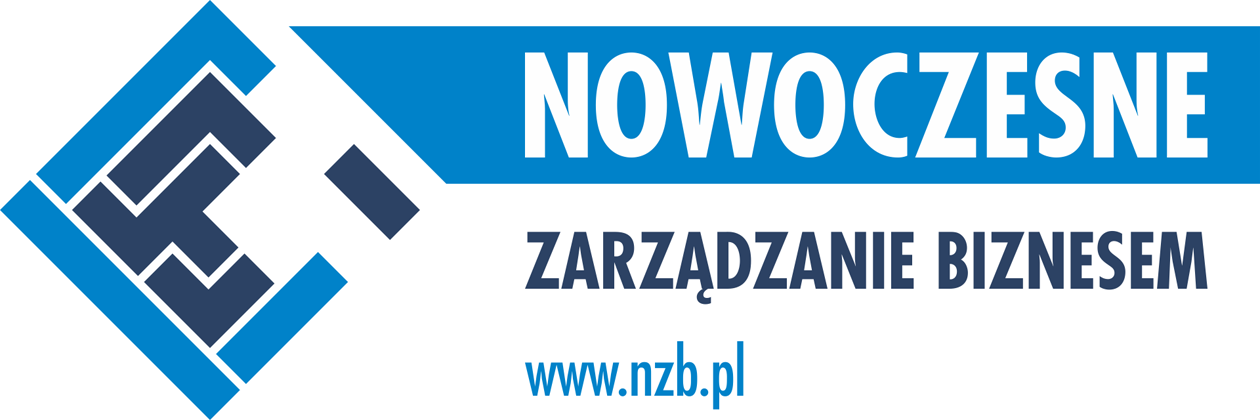
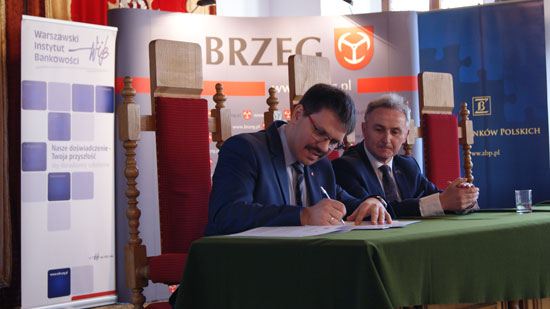

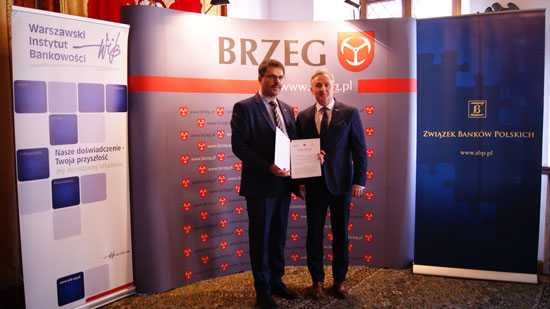
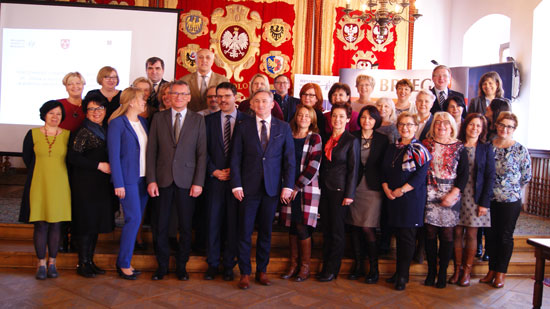
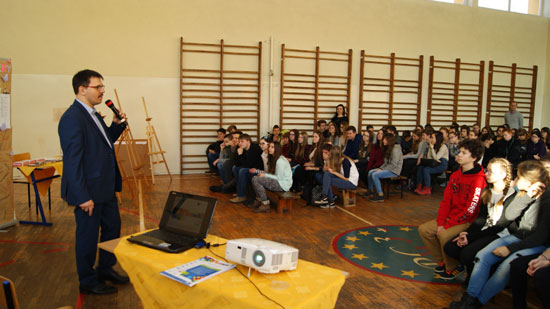
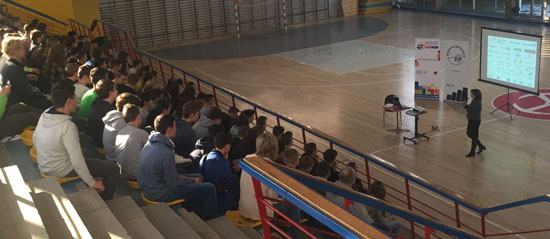

 ATMs have different names in different countries. In Australia and Canada they’re called “bank machines” or “money machines”, in New Zealand they’re called “Cash Points”, “Hole-in-the-walls” in the United Kingdom, and “Bancomats” in Europe.
ATMs have different names in different countries. In Australia and Canada they’re called “bank machines” or “money machines”, in New Zealand they’re called “Cash Points”, “Hole-in-the-walls” in the United Kingdom, and “Bancomats” in Europe. The banking conglomerate Wells Fargo installed two automatic teller machines at McMurdo Station, the largest science hub in Antarctica.
The banking conglomerate Wells Fargo installed two automatic teller machines at McMurdo Station, the largest science hub in Antarctica.  Former Fed Chairman Alan Greenspan has a poorly veiled tic in his right eyebrow. Investors measured how high he raised it while talking, saying it was a better indicator of whether interest rates were going up.
Former Fed Chairman Alan Greenspan has a poorly veiled tic in his right eyebrow. Investors measured how high he raised it while talking, saying it was a better indicator of whether interest rates were going up. The Knights Templar in the XII century began generating letters of credit for pilgrims journeying to the Holy Land: pilgrims deposited their valuables with a local Templar preceptory before embarking, received a document indicating the value of their deposit, then used that document upon arrival in the Holy Land to retrieve their funds. This innovative arrangement was an early form of travellers cheques.
The Knights Templar in the XII century began generating letters of credit for pilgrims journeying to the Holy Land: pilgrims deposited their valuables with a local Templar preceptory before embarking, received a document indicating the value of their deposit, then used that document upon arrival in the Holy Land to retrieve their funds. This innovative arrangement was an early form of travellers cheques. A scientific study conducted in 2009 concluded that somewhere between 90-94% of all U.S. bills in circulation carry traces of cocaine on them. This is largely due to the practices of drug traffickers who move large amounts of cash with the drug all over their hands, and the fact that the bills are often rolled up into straws and used to snort the drug.
A scientific study conducted in 2009 concluded that somewhere between 90-94% of all U.S. bills in circulation carry traces of cocaine on them. This is largely due to the practices of drug traffickers who move large amounts of cash with the drug all over their hands, and the fact that the bills are often rolled up into straws and used to snort the drug.


